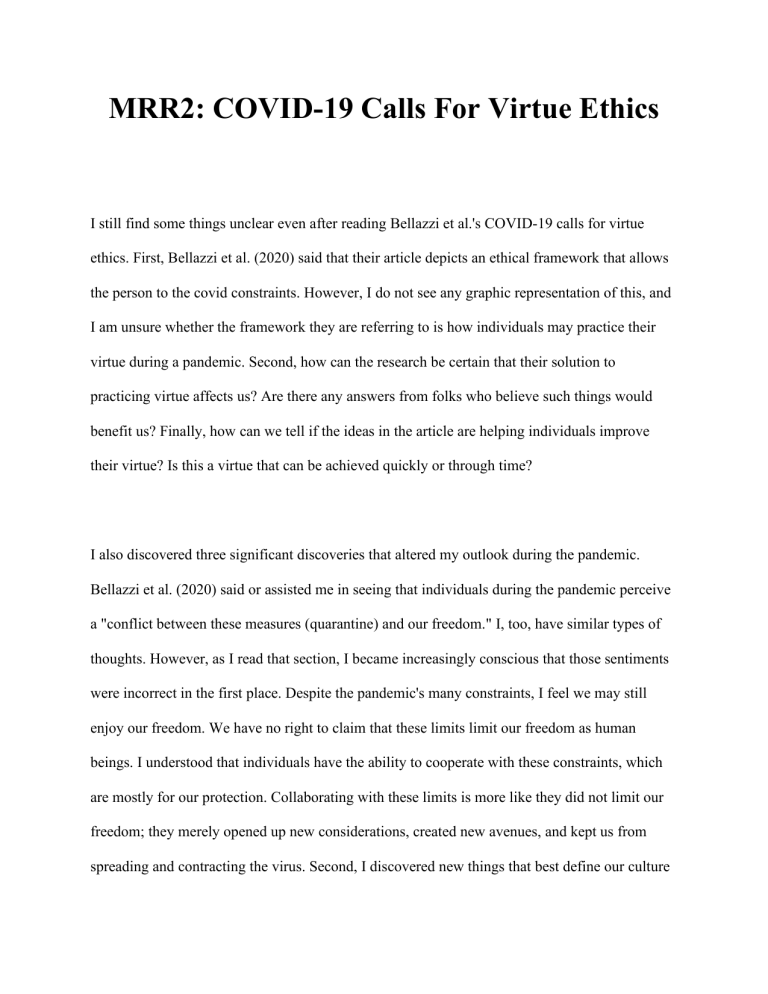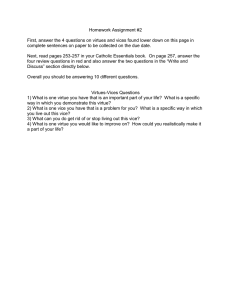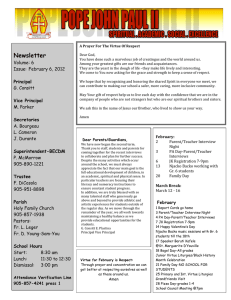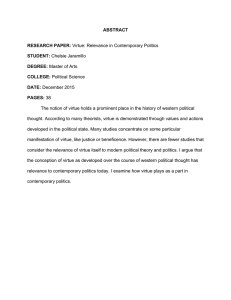
MRR2: COVID-19 Calls For Virtue Ethics I still find some things unclear even after reading Bellazzi et al.'s COVID-19 calls for virtue ethics. First, Bellazzi et al. (2020) said that their article depicts an ethical framework that allows the person to the covid constraints. However, I do not see any graphic representation of this, and I am unsure whether the framework they are referring to is how individuals may practice their virtue during a pandemic. Second, how can the research be certain that their solution to practicing virtue affects us? Are there any answers from folks who believe such things would benefit us? Finally, how can we tell if the ideas in the article are helping individuals improve their virtue? Is this a virtue that can be achieved quickly or through time? I also discovered three significant discoveries that altered my outlook during the pandemic. Bellazzi et al. (2020) said or assisted me in seeing that individuals during the pandemic perceive a "conflict between these measures (quarantine) and our freedom." I, too, have similar types of thoughts. However, as I read that section, I became increasingly conscious that those sentiments were incorrect in the first place. Despite the pandemic's many constraints, I feel we may still enjoy our freedom. We have no right to claim that these limits limit our freedom as human beings. I understood that individuals have the ability to cooperate with these constraints, which are mostly for our protection. Collaborating with these limits is more like they did not limit our freedom; they merely opened up new considerations, created new avenues, and kept us from spreading and contracting the virus. Second, I discovered new things that best define our culture and the most recent events in our town. Before reading the story, all I knew was that our society is growing more corrupt in ways that make freedom, consideration, love, hospitality, Bayanihan, and other values in our community more unrequited. I have noticed that individuals are considered unobjectionable when it comes to many societal concerns such as rape, poverty, pollution, abuse, crime, etc. However, after reading the essay, I discovered that our culture is characterized by utilitarianism and negative liberty. I feel these two are unhealthy in our culture; for example, utilitarianism "would state that an activity is ethical if it leads in the happiness of the largest number of individuals in a society or a group," according to Tardi (2021), but what about the other people who are unhappy? Will the government no longer take into account the sentiments and thoughts of those who do not share the majority's happiness? The last discovery that substantially influences my perspective is the constant reference of 'virtue' throughout the essay. When the subject of "are the lockdowns taking away the freedom of its people?" comes up, it appears that virtue is the only thing a person needs. I believe 'virtue' may enable an individual behave and act appropriately even when there are a lot of limitations due to the covid. It's like if virtue is operating as a tool in inventing new ways or improving new actions so that constraints do not hamper your potential efforts and activities. It is not easy to describe, but I feel these three lessons have given me a fresh perspective on how I perceive our country now. Even though I learned something, the article still left me with many unanswered questions. First, from what I understand, virtue is critical in opposing utilitarianism and negative liberty in our society, but is a virtue the most significant factor in resolving these? Is it all of them, or just one of them? Second, is the Philippine government aware that people should practice virtue and know how to do so in the event of a pandemic? Moreover, perhaps, the government is attempting to support this proposal? Finally, according to Bellazzi et al., is it the media's responsibility that people have a sense of less freedom due to the covid restrictions? (2020). Perhaps it is due to hyperbole, but is it conceivable that these media outlets will face the consequences of their statements?





